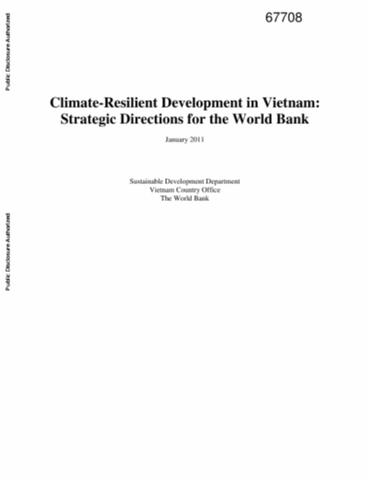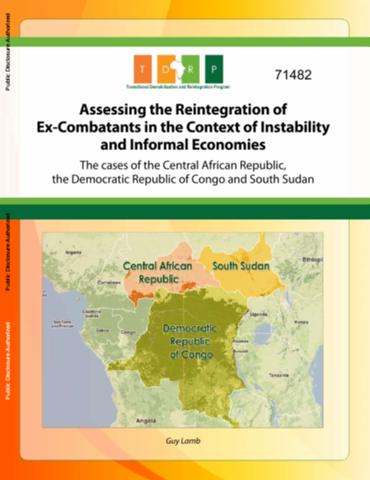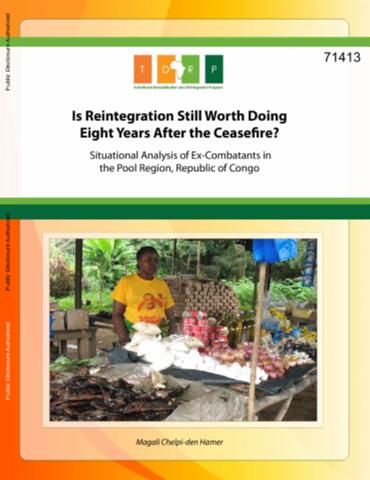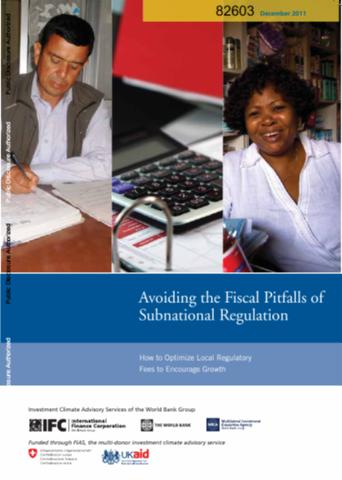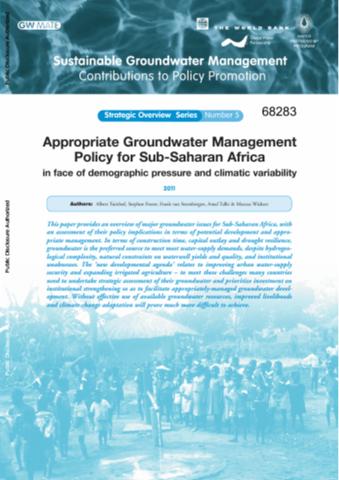The World Bank is a vital source of financial and technical assistance to developing countries around the world. We are not a bank in the ordinary sense but a unique partnership to reduce poverty and support development. The World Bank Group has two ambitious goals: End extreme poverty within a generation and boost shared prosperity.
- To end extreme poverty, the Bank's goal is to decrease the percentage of people living on less than $1.25 a day to no more than 3% by 2030.
- To promote shared prosperity, the goal is to promote income growth of the bottom 40% of the population in each country.
The World Bank Group comprises five institutions managed by their member countries.
The World Bank Group and Land: Working to protect the rights of existing land users and to help secure benefits for smallholder farmers
The World Bank (IBRD and IDA) interacts primarily with governments to increase agricultural productivity, strengthen land tenure policies and improve land governance. More than 90% of the World Bank’s agriculture portfolio focuses on the productivity and access to markets by small holder farmers. Ten percent of our projects focus on the governance of land tenure.
Similarly, investments by the International Finance Corporation (IFC), the World Bank Group’s private sector arm, including those in larger scale enterprises, overwhelmingly support smallholder farmers through improved access to finance, inputs and markets, and as direct suppliers. IFC invests in environmentally and socially sustainable private enterprises in all parts of the value chain (inputs such as irrigation and fertilizers, primary production, processing, transport and storage, traders, and risk management facilities including weather/crop insurance, warehouse financing, etc
For more information, visit the World Bank Group and land and food security (https://www.worldbank.org/en/topic/agriculture/brief/land-and-food-security1
Resources
Displaying 4546 - 4550 of 4907Climate-Resilient Development in Vietnam
Weather is the term used to describe the atmospheric conditions (heat, wetness, wind, etc.) prevailing at any one place and time. Climate is the sum of the prevailing weather conditions of a given place over a period of time, typically summed over many decades. This paper seeks to provide strategic directions for mainstreaming support for climate change within the World Bank's broader program of assistance to Vietnam.
Assessing the Reintegration of Ex-Combatants in the Context of Instability and Informal Economies
The implementation of effective Disarmament, Demobilisation and Reintegration (DDR) programmes in countries emerging from violent conflict are essential for building and maintaining peace and security. In many instances the disarmament and demobilisation of former combatants was achieved, but reintegration remained a challenge, due to the long-term focus and the substantial resources that are required for such a process to be successful.
Is Reintegration Still Worth Doing Eight Years After the Ceasefire?
Although official warfare in the Republic of Congo stopped more than eight years ago, the pool region has continued to feel the collateral effects of war until now at a scale largely ignored by the general public. The pool region is where the Ninjas, a group of local militias, originated during the civil strife and retreated to afterwards. Peace and recovery did not gain traction in the area until 2010/11.
Avoiding the Fiscal Pitfalls of Subnational Regulation
Since investment climate reforms in developing countries started gaining traction in the 1990s, most efforts have focused on issues at the national level, achieving varying degrees of success for reasons that are relatively well understood. This handbook provides an overview of efforts and achievements in subnational investment climate reforms. It is organized as follows. Chapter 2 reviews a number of countries experiences with subnational reforms, noting both success stories and disappointments and pointing toward lessons learned.
Appropriate Groundwater Management Policy for Sub-Saharan Africa
This paper provides an overview of major groundwater issues for Sub-Saharan Africa, with an assessment of their policy implications in terms of potential development and appropriate management. In terms of construction time, capital outlay and drought resilience, groundwater is the preferred source to meet most water-supply demands, despite hydro geological complexity, natural constraints on water well yields and quality, and institutional weaknesses.






